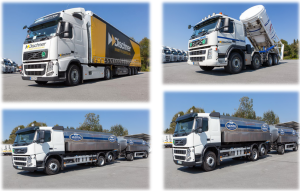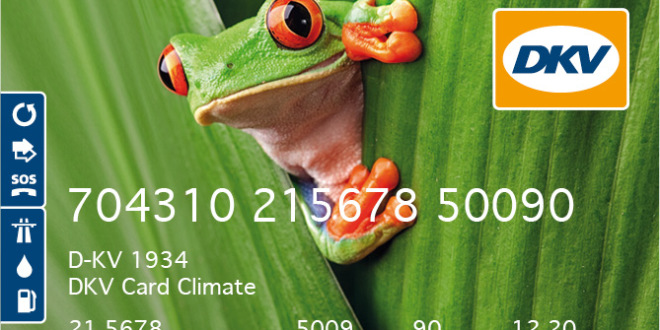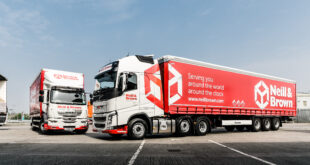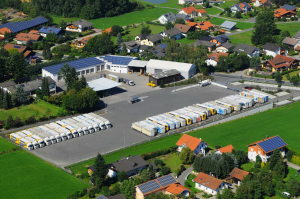Dischner, Speditions- und Handelsgesellschaft mbH
Dischner was founded in 1957, originally it focused on the construction materials and agricultural sector. Transport services have always been an important part of their portfolio. In the 1990s the construction materials and agricultural sectors went through structural changes. Because of these changes Dischner decided to focus more on transport services and logistics. Today, they own vehicles perfectly equipped to satisfy the needs of the customer and offer worthwhile advantages. They now employ 80 employees, the overwhelming majority being professional truck drivers.
“Whatever the task, DKV has the solution!”
Josef and Wolfram Dischner, Managing Directors
Sustainable business operations in all areas of the company
Environmental protection has always played an important role in the company’s philosophy. “We are strongly convinced that sustainable business is an important basis for commercial success,” stresses Josef Dischner. In the 1990s the company decided to move to biodiesel and plant oil fuels in order to reduce c02 emissions and improve its ecological balance sheet. After these fuels became taxed and blending quotas for conventional fuels were introduced and increased, the company looked for alternatives. They soon struck upon an excellent one: in the company’s garage all its trucks were modified to use LPG alongside conventional diesel. “Through the additional option of LPG, we can offset up to 30% of our diesel consumption,” explains Josef Dischner.

Sustainable business operations in all areas of the company
To offset environmentally for the remaining fuel consumption, the company opted for the DKV CARD CLIMATE at the start of 2015. Before this decision, the company used the DKV CARD. The company was impressed above all by the all-round service from DKV: “Whatever the task, DKV has the solution,” sums up Wolfram Dischner. Users of this card are actively supporting climate protection. With every litre, they invest an additional sum in certified climate protection projects (e.g. wind energy in Turkey, biomass cookers in China and solar cookers in Madagascar) and, in doing so, make a contribution towards worldwide carbon neutrality. “We see ourselves as well set up for sustainability,” says Wolfram Dischner. “We continuously audit all areas of our company to be sure of continuing to move goods for our customers in an ecological and efficient way in the future.”
 DKV BeNeLux You drive, we care
DKV BeNeLux You drive, we care


